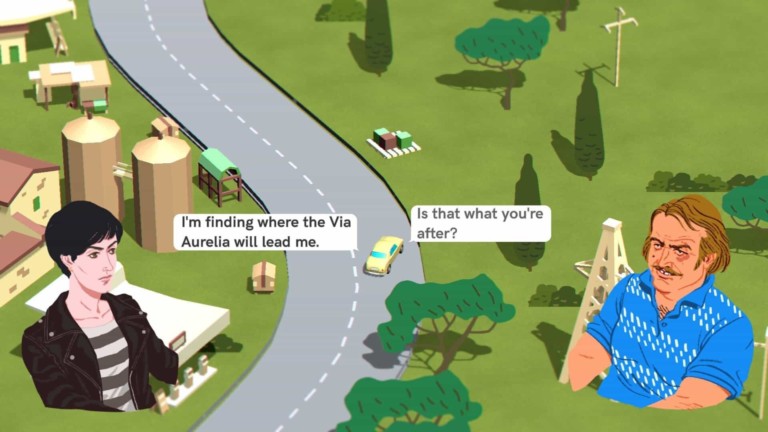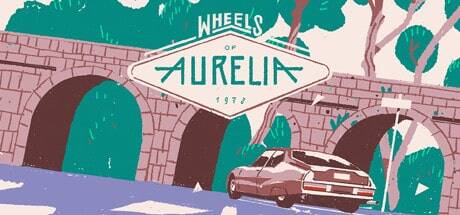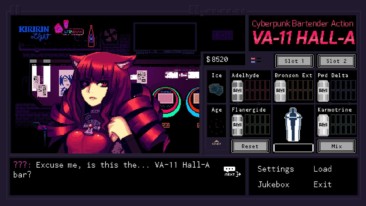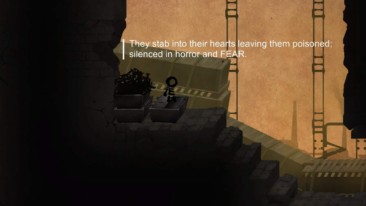Wheels of Aurelia from Santa Ragione
Wheels of Aurelia is a road trip simulator. Mind you, that doesn’t mean it’s a driving game. It’s not really about the driving at all, in fact. It’s about the conversations and unexpected occurrences that come along with a long time spent on the highway.
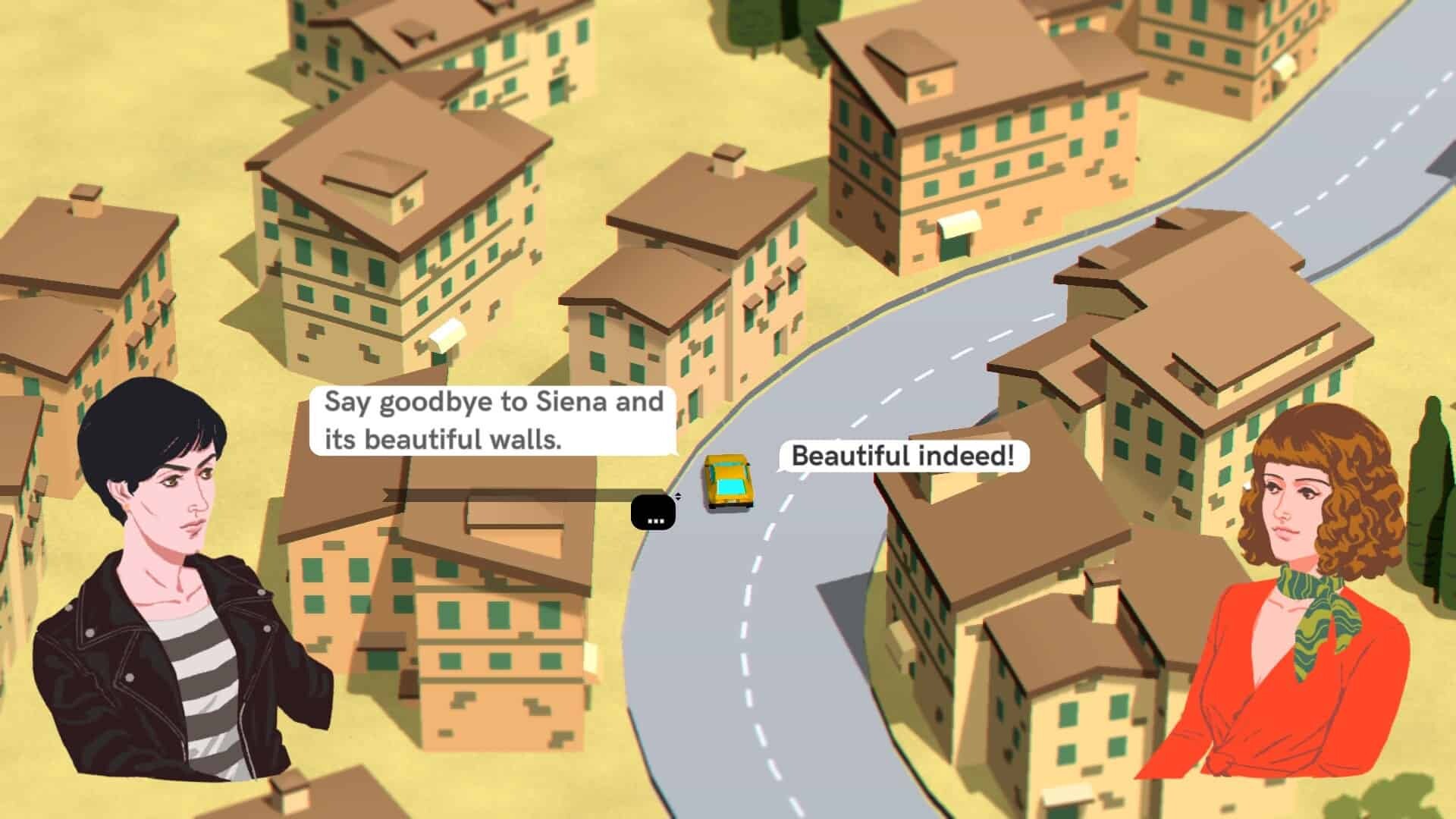
Drive, She Said
Wheels of Aurelia runs on two separate mechanics. There’s the driving, which is simple enough – arrow keys to steer and space bar to speed up for a bit – and there’s the conversations. The latter are the real meat of the game, and are presented as multiple choice options in the vein of last year’s similarly dialogue-driven Dyscourse.
In truth, the driving is inessential, even a bit clumsy. While there are a couple of story developments that require paying closer attention to the road, for the most part a player can focus entirely on the conversations and let the car drive itself – the game more or less takes over once you stop hitting the driving keys.
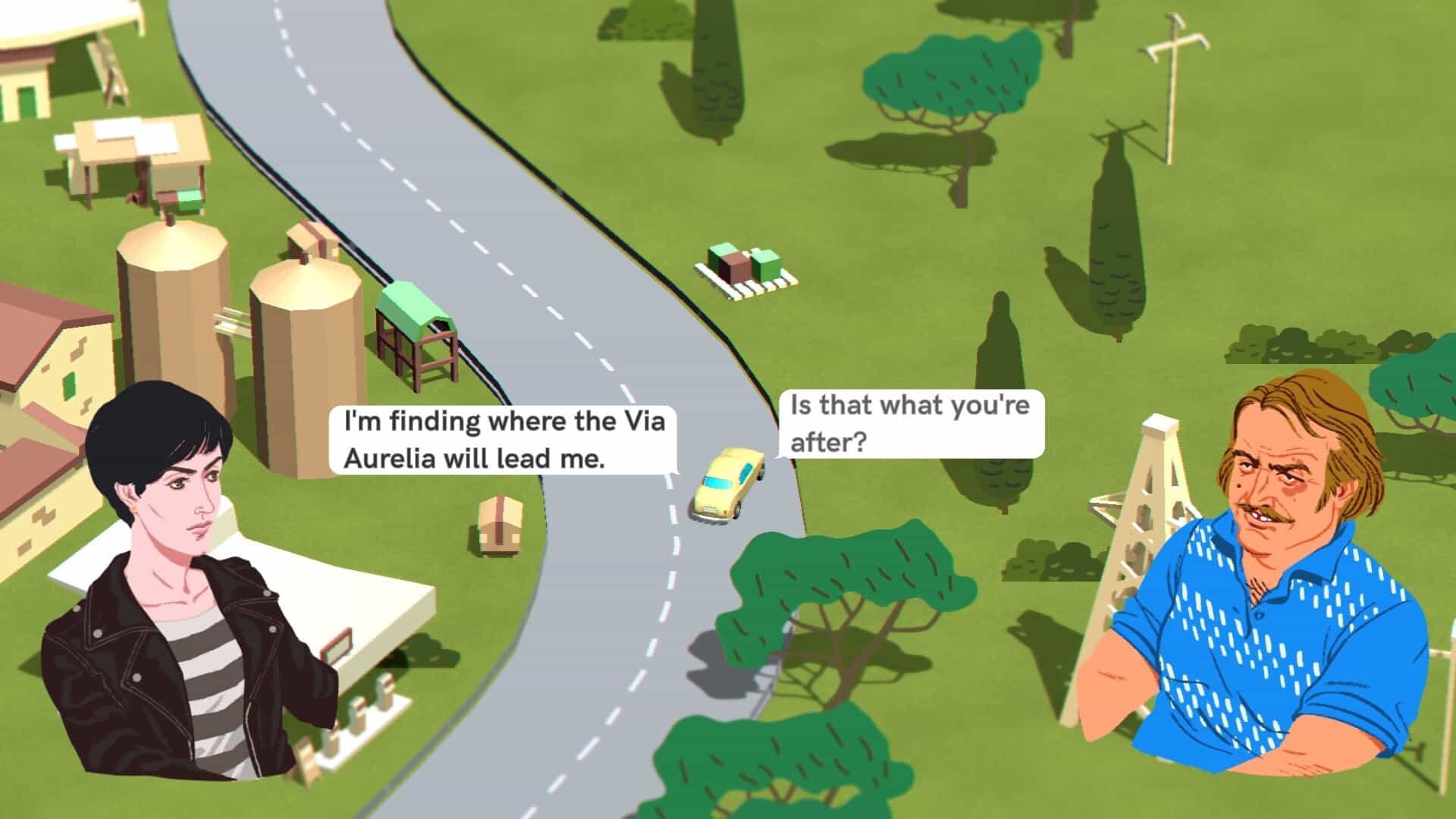
Lost Highway
While players expecting a driving game might feel a bit disappointed, the setting and characters more than make up for it. The game takes place on La Via Aurelia – Italy’s famed highway built on the bones of the original Roman Road – in 1978, a tumultuous year for the country that involved terrorist attacks and politically motivated kidnappings.
The Santa Ragione crew have done a wonderful job recreating that time and place in Wheels of Aurelia, from the colorful geometric graphics and simple but evocative character portraits to the amazing retro-pop soundtrack by Nicolo Sala and Gipsy Studio.
The characters are also engaging and empathetic. Lella, the protagonist, is a rich girl on the run from traditional expectations – she’s an aspiring race car driver – not to mention some recent past trauma. Accompanying her on the trip is Olga, whose sunny disposition contrasts nicely with Lella’s sardonic cynicism but who hides a dark secret of her own.
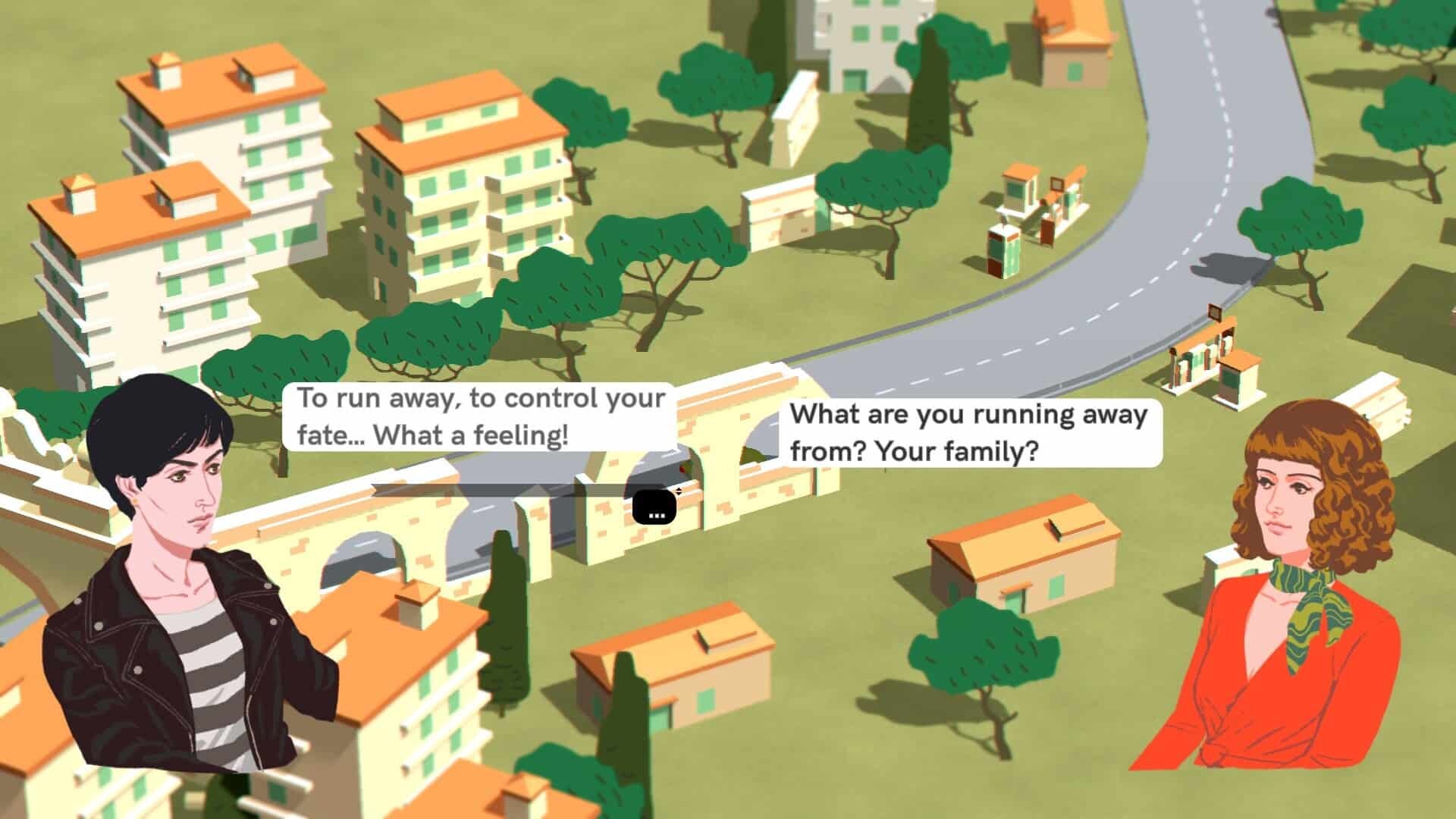
The Journey, Not the Destination Matters
Along the road, they’ll encounter additional characters, from possible terrorists to former F1 racing legends, from hippies to priests. With each play-through taking only 15 minutes or so, it’s fairly easy to work your way around the cities along the Via Aurelia and explore a number of the 16 possible endings – many of which are as bleak as a Pasolini film.
Even so, the more I learned about Lella, Olga and the motley crew of possible hitchhikers, the more I wanted to know them. While the game isn’t perfect – in addition to the lack of integration between the driving and conversation, some of the dialogue trees got a bit jumbled in a couple of play-throughs – it’s incredibly evocative in a way that I haven’t seen before. The closest is probably the similar talking-while-driving game Three Fourths Home, but Wheels of Aurelia’s alternate endings give it much more of a sense of interactivity.
Lella’s story – or stories, given the disparate possible endings – will stick with me long after I’ve finished my own ride on La Via Aurelia.
[xrr rating=”4.5/5″]
Watch the official trailer for Wheels of Aurelia below:

